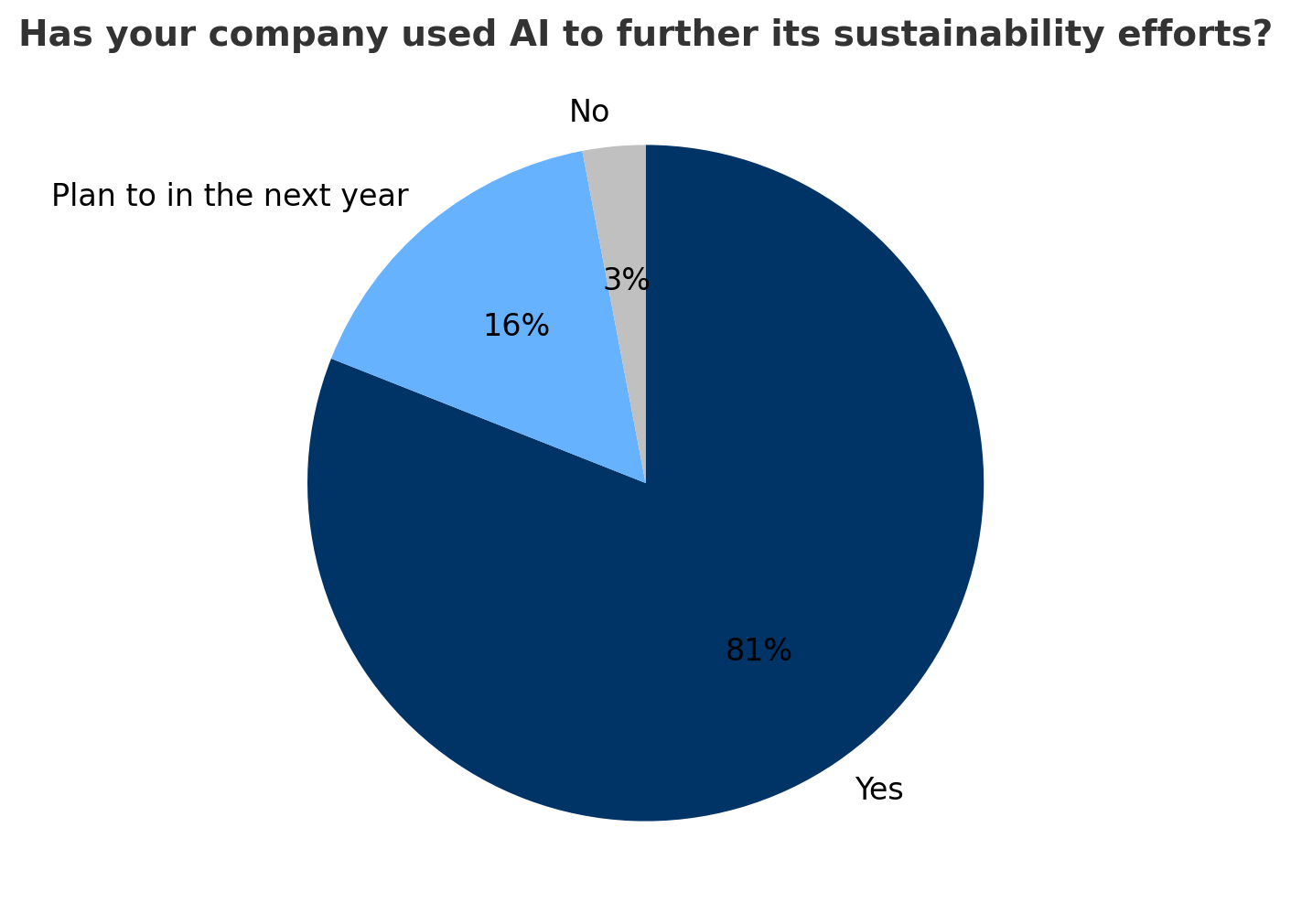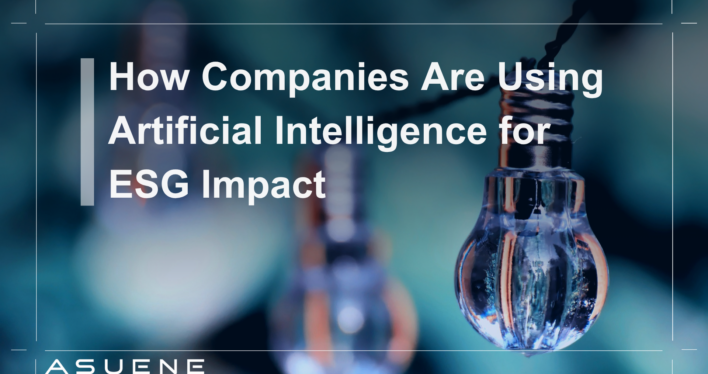- Article Summary
-
Introduction: The New Digital Engine of Sustainability
Artificial intelligence is reshaping how companies approach environmental, social, and governance (ESG) impact. According to Deloitte’s 2025 Global C-suite Sustainability Report, 81 percent of executives say they already use AI to advance sustainability goals. This reflects a shift from incremental projects to an integrated, data-driven approach where AI supports measurement, optimization, and innovation across business functions.
Executives increasingly view sustainability data as a strategic resource. With AI, they can identify emission reduction opportunities, forecast climate risks, and develop products that align with low-carbon goals. This digital transformation is helping sustainability move from isolated initiatives toward becoming a foundational business driver.

AI as the Core Enabler of ESG Progress
Deloitte’s survey shows a rapid expansion of AI adoption in sustainability programs:
| AI Use Case | Primary Objective | Example Application | Reported Impact |
|---|---|---|---|
| Operational Efficiency | Reduce Scope 1 & 2 emissions | AI-driven energy optimization | 65% adoption |
| Risk Mitigation | Model climate and supply risks | Predictive analytics, scenario modeling | 53% adoption |
| Product Innovation | Develop sustainable products | Material substitution algorithms | 52% adoption |
| ESG Reporting | Automate data collection | AI-enabled dashboards and metrics | 58% adoption |
These results reveal how companies are turning technology into a foundation for ESG progress. AI systems enable data analysis at a scale and speed that human teams cannot match. From optimizing factory energy use to managing Scope 3 supply chain data, AI supports what Deloitte calls a “de facto roadmap” for embedding sustainability into strategy, operations, and innovation.
From Reporting to Value Creation
Deloitte’s findings show that revenue generation is now the most cited business benefit of sustainability actions. This signals that companies are moving beyond compliance toward creating measurable business value. AI-driven sustainability analytics are central to this transition.
Real-time energy monitoring can cut operational costs and emissions simultaneously. Predictive data modeling identifies risks and new market opportunities before they become visible. Enhanced transparency builds customer trust and brand resilience. For example, NZero‘s energy management system uses AI to analyze utility data, weather, and occupancy for peak reduction and emissions savings, while Fujitsu integrates AI for supply chain transparency.
AI allows companies to make sustainability decisions based on evidence rather than assumptions. This shift is accelerating efficiency, strengthening competitiveness, and reinforcing the financial case for ESG investment.

The Maturity Gap: Barriers and Missed Opportunities
Despite high adoption, many companies still face challenges capturing the full benefits of AI-driven ESG programs. Deloitte’s report notes that 40 percent of executives cite data quality and accuracy issues as major barriers, while 32 percent point to limited readiness of systems and processes for ESG data reporting.
Organizations often collect sustainability metrics but fail to use them for strategic decision-making. This underutilization limits their ability to extract business value from ESG data. Common obstacles include fragmented systems, inconsistent methodologies, and misalignment between finance, sustainability, and technology teams.
Generative AI and automation can close these gaps by filling missing data, detecting anomalies, and generating reports that align with evolving regulatory frameworks. The next phase of corporate sustainability will depend on connecting the dots between data quality, insight generation, and action.
| Current Challenge | AI Solution Path |
| Incomplete data sets | Predictive estimation and anomaly detection |
| Manual ESG reporting | Automated language generation for disclosures |
| Low insight from metrics | Predictive analytics and benchmarking tools |
| Departmental silos | Unified dashboards for executive collaboration |
Conclusion: Turning AI Momentum into Measurable ESG Impact
AI has evolved from an experimental tool into a core enabler of sustainability transformation. Deloitte’s 2025 findings suggest that companies integrating AI into their decision-making frameworks achieve stronger resilience, transparency, and growth potential.
To maintain momentum, leaders must treat sustainability data as a key business asset. They should invest in AI capabilities that enhance visibility across the value chain, align sustainability and financial data, and enable continuous improvement.
The next wave of business value will be driven by intelligence: applied, adaptive, and accountable. Companies that combine technology with purpose will lead the era of measurable ESG impact.
Why Work with ASUENE Inc.?
ASUENE is a key player in carbon accounting, offering a comprehensive platform that measures, reduces, and reports emissions. The company serves over 10,000 clients worldwide with an all-in-one solution that integrates GHG accounting, ESG supply chain management, a Carbon Credit exchange platform, and third-party verification.
Through its energy management system NZero, ASUENE provides SMEs with the practical tools to make the most of EU funding for energy efficiency. NZero combines advanced technology, consulting services, and an extensive partner network to help companies achieve their net-zero goals. By choosing ASUENE, SMEs gain not only access to reliable carbon accounting but also a powerful EMS platform designed to unlock energy savings and long-term sustainability success.


